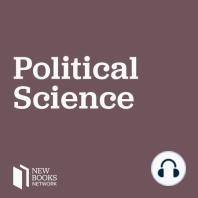56 min listen

Pierre Penet and Juan Flores Zendejas, "Sovereign Debt Diplomacies: Rethinking Sovereign Debt from Colonial Empires to Hegemony" (Oxford UP. 2021)
Pierre Penet and Juan Flores Zendejas, "Sovereign Debt Diplomacies: Rethinking Sovereign Debt from Colonial Empires to Hegemony" (Oxford UP. 2021)
ratings:
Length:
60 minutes
Released:
May 31, 2022
Format:
Podcast episode
Description
Pierre Penet and Juan Flores Zendejas' book Sovereign Debt Diplomacies: Rethinking Sovereign Debt from Colonial Empires to Hegemony (Oxford UP. 2021) aims to revisit the meaning of sovereign debt in relation to colonial history and postcolonial developments. It offers three main contributions. The first contribution is historical. The volume historicizes a research field that has so far focused primarily on the post-1980 years. A focus on colonial debt from the 19th century building of colonial empires to the decolonization era in the 1960s-70s fills an important gap in recent debt historiographies. Economic historians have engaged with colonialism only reluctantly or en passant, giving credence to the idea that colonialism is not a development that deserves to be treated on its own. This has led to suboptimal developments in recent scholarship.
The second contribution adds a 'law and society' dimension to studies of debt. The analytical payoff of the exercise is to capture the current developments and functional limits of debt contracting and adjudication in relation to the long-term political and sociological dynamics of sovereignty. Finally, Sovereign Debt Diplomacies imports insights from, and contributes to the body of research currently developed in the Humanities under the label 'colonial and postcolonial studies'. The emphasis on 'history from below' and focus on 'subaltern agency' usefully complement the traditional elite-perspective on financial imperialism favored by the British school of empire history.
Javier Mejia is an economist teaching at Stanford University, whose work focuses on the intersection between social networks and economic history. His interests extend to topics on entrepreneurship and political economy with a geographical specialty in Latin America and the Middle East. He received a Ph.D. in Economics from Los Andes University. He has been a Postdoctoral Associate and Lecturer at New York University--Abu Dhabi and a Visiting Scholar at the University of Bordeaux. He is a regular contributor to different news outlets. Currently, he is Forbes Magazine op-ed columnist.
Learn more about your ad choices. Visit megaphone.fm/adchoices
Support our show by becoming a premium member! https://newbooksnetwork.supportingcast.fm/political-science
The second contribution adds a 'law and society' dimension to studies of debt. The analytical payoff of the exercise is to capture the current developments and functional limits of debt contracting and adjudication in relation to the long-term political and sociological dynamics of sovereignty. Finally, Sovereign Debt Diplomacies imports insights from, and contributes to the body of research currently developed in the Humanities under the label 'colonial and postcolonial studies'. The emphasis on 'history from below' and focus on 'subaltern agency' usefully complement the traditional elite-perspective on financial imperialism favored by the British school of empire history.
Javier Mejia is an economist teaching at Stanford University, whose work focuses on the intersection between social networks and economic history. His interests extend to topics on entrepreneurship and political economy with a geographical specialty in Latin America and the Middle East. He received a Ph.D. in Economics from Los Andes University. He has been a Postdoctoral Associate and Lecturer at New York University--Abu Dhabi and a Visiting Scholar at the University of Bordeaux. He is a regular contributor to different news outlets. Currently, he is Forbes Magazine op-ed columnist.
Learn more about your ad choices. Visit megaphone.fm/adchoices
Support our show by becoming a premium member! https://newbooksnetwork.supportingcast.fm/political-science
Released:
May 31, 2022
Format:
Podcast episode
Titles in the series (100)
Stacy G. Ulbig, "Angry Politics: Partisan Hatred and Political Polarization Among College Students" (UP of Kansas, 2020): An interview with Stacy G. Ulbig by New Books in Political Science